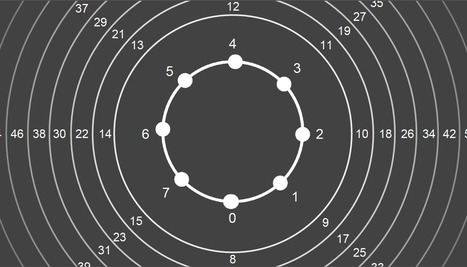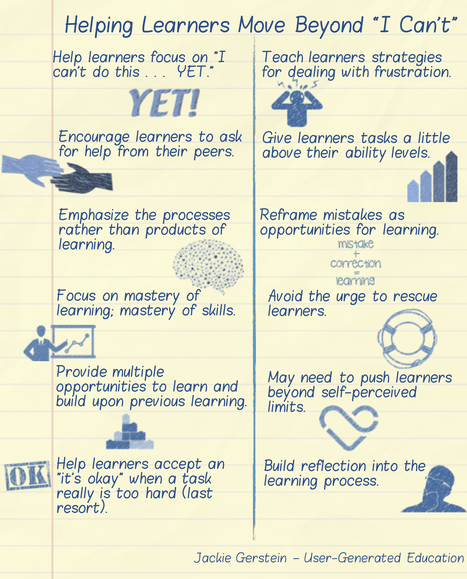 Your new post is loading...
 Your new post is loading...

|
Scooped by
John Evans
|
Math educator Dan Finkel grew up doing math with ease and completed calculus as a freshman in high school. But it wasn't until he went to math summer camp and learned how to think like a mathematician that he truly fell in love with math. It helps to have a positive relationship with math because when people are uncomfortable with it they are susceptible to manipulation. (Think of predatory lending interest rates, convenient statistics to support a thin argument, graphs that misrepresent the truth.)
“When we’re not comfortable with math, we don't question the authority of numbers,” said Finkel in his TEDx Talk, “Five ways to share math with kids.”
I work part-time with elementary learners – with gifted learners during the school year and teaching maker education camps during the summer. The one thing almost all of them have in common is yelling out, “I can’t do this” when the tasks aren’t completed upon first attempts or get a little too difficult for them. I partially blame this on the way most school curriculum is structured. Too much school curriculum is based on paper for quick and one shot learning experiences (or the comparable online worksheets). Students are asked to do worksheets on paper, answer end-of-chapter questions on paper, write essays on paper, do math problems on paper, fill in the blanks on paper, and pick the correct answer out of a multiple choice set of answers on paper. These tasks are then graded as to the percentage correct and then the teacher moves onto the next task.
So it is no wonder that when learners are given hands-on tasks such as those common to maker education, STEM, and STEAM, they sometimes struggle with their completion. Struggles are good. Struggles with authentic tasks mimics real life so much more than completing those types of tasks and assessments done at most schools.
Problems like yelling out, “I can’t do this” arise when the tasks get a little too difficult, but ultimately are manageable. I used to work with delinquent kids within Outward Bound-type programs. Most at-risk kids have some self-defeating behaviors including those that result in personal failure. The model for these types of programs is that helping participants push past their self-perceived limitations results in the beginnings of a success rather than a failure orientation. This leads into a success building upon success behavioral cycle.
|

|
Scooped by
John Evans
|
Teens who read about the personal and intellectual struggles of scientists feel more motivated to learn science. That was the finding of a recent study out of Teachers College, Columbia University and the University of Washington.
Why? Many high school students view scientific ability as a fixed trait that is not responsive to effort. As the researchers wrote: “When students struggle in science classes, they may misperceive their struggle as an indication that they are not good at science and will never succeed.” When students learn about how even famous scientists struggled, they began to see that learning and growing from setbacks is part of a successful professional journey.
The researchers noted that published stories about scientists often focus on achievements but neglect mention challenges scientists faced. When Lisa Brennan, a middle school librarian at St. Christopher’s School in Virginia, read about this study in a recent MindShift article, her initial reaction was, “Wow, that parallels the research on the connection between fiction and empathy.” She reached out to her extensive Twitter followers to start gathering titles that cover both the achievements and the struggles of exemplary scientists that could be used with older students.
|
 Your new post is loading...
Your new post is loading...
 Your new post is loading...
Your new post is loading...













